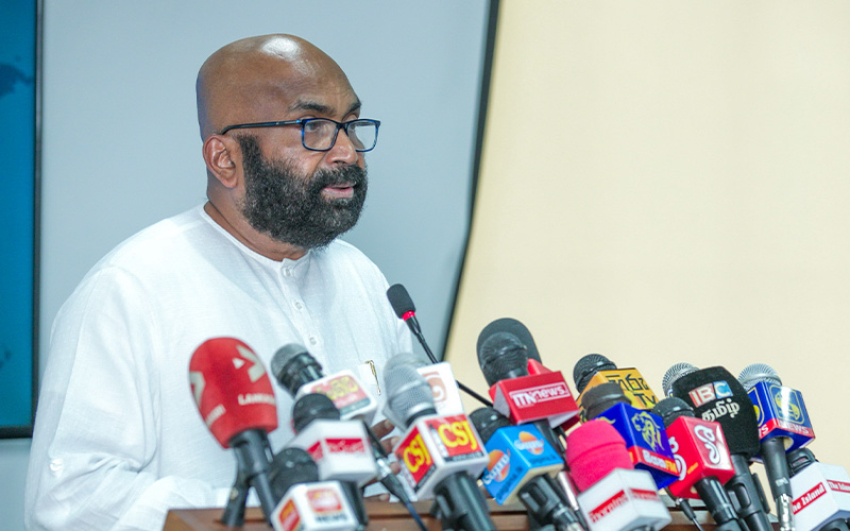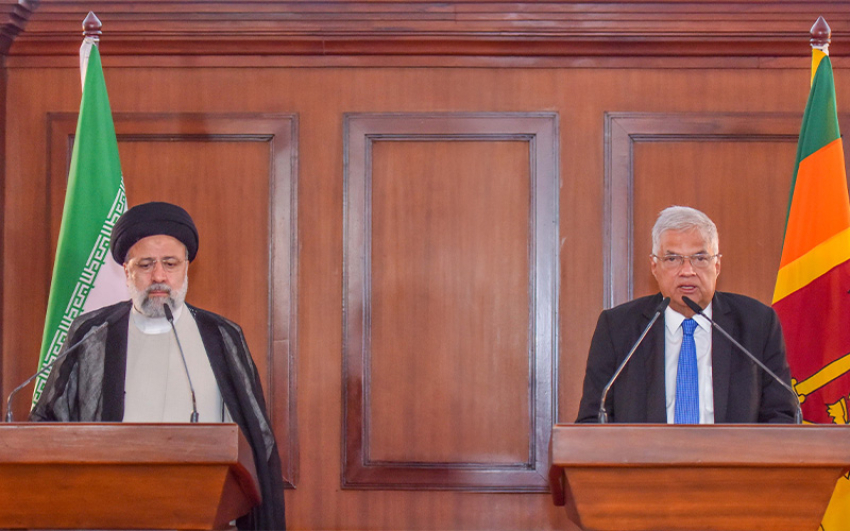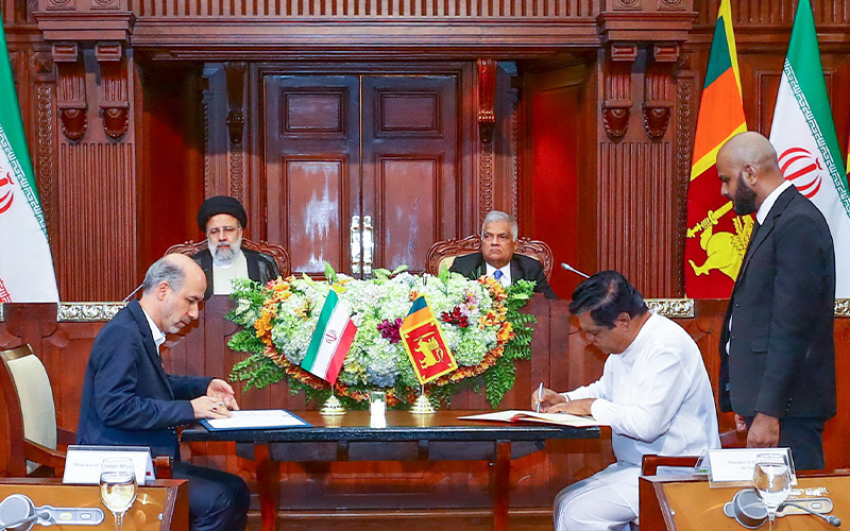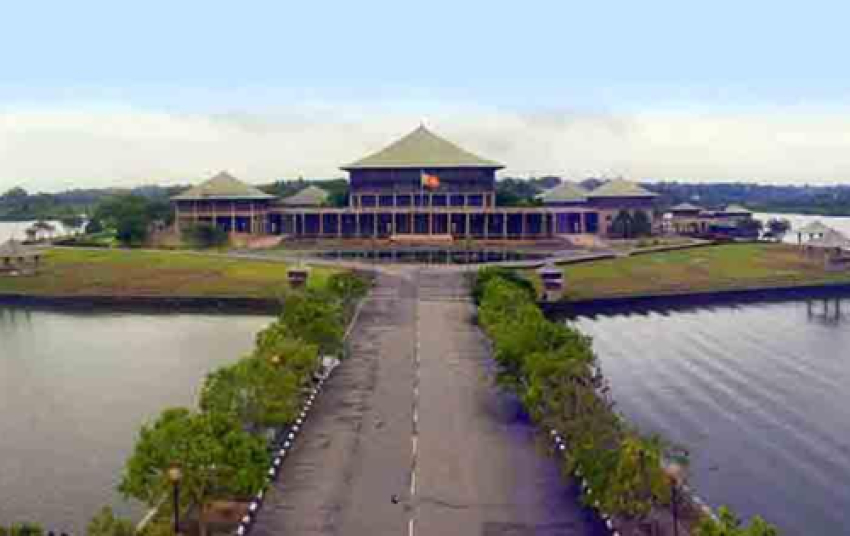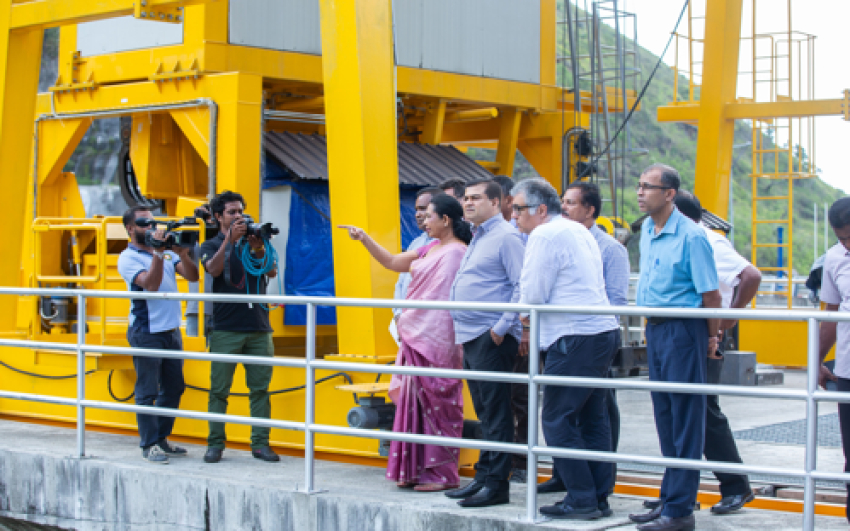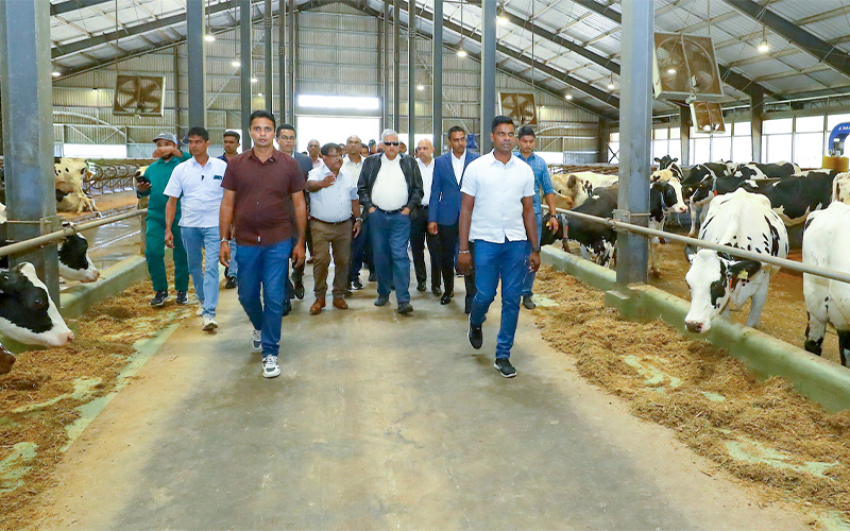This achievement is the result of years of dedicated efforts by farmers and government initiatives to boost domestic rice production. It not only bodes well for the nation’s food security but also represents a critical step towards reducing reliance on foreign imports and strengthening the agricultural sector.
The Minister of Agriculture and Plantation Industry, Mr. Mahinda Amaraweera mentioned this while joining a press briefing held at the Presidential Media Centre (PMC) on the theme ‘Collective Path to a Stable Country’ today (29).
Minister Amaraweera announced a renewed focus on supporting Sri Lanka’s agricultural and plantation sectors in 2023. His ministry implemented targeted programs aimed at boosting both industries.
One key initiative was a substantial financial investment in fertilizer subsidies. During the Yala and Maha seasons, Rs. 22 billion were allocated to ensure access and affordability for farmers. Additionally, the government committed Rs. 13 billion to directly purchase paddy from farmers, providing valuable income and market stability.
This dedication paid off. Unlike 2022, when 08 metric tons of rice was imported, Sri Lanka achieved self-sufficiency in 2023. The people of the country consumed rice grown entirely by Sri Lankan farmers throughout the year. This remarkable achievement, against the backdrop of economic challenges, underscores the resilience and success of the government’s agricultural development efforts.
Minister Amaraweera highlighted the significant investments made in 2023 to revitalize Sri Lanka’s agricultural and plantation sectors. The success of these programs, particularly in achieving rice self-sufficiency, demonstrates the importance of targeted support for farmers and the potential for further growth in these vital industries.
Echoing the devastation of the previous year, paddy cultivation once again fell victim to both drought and torrential downpours. A staggering 65,000 acres succumbed to the parched earth, while another 100,000 acres drowned under relentless floods. Recognizing the farmers’ plight, the government allocated Rs. One billion to compensate for drought-related losses, with 700 million already distributed. However, the fate of flood-damaged farmers remains uncertain, casting a shadow over their livelihoods and raising concerns about the future of this vital crop.
The recent surge in vegetable prices has been a major concern for Sri Lankans. This increase was primarily driven by the destruction of large-scale vegetable crops due to heavy rains. Farmers faced the unfortunate situation of replanting their seeds multiple times, only to see them washed away by the downpours.
However, there is a glimmer of hope. By providing farmers with “net houses,” the government has enabled them to cultivate vegetables in a more protected environment, ensuring some level of supply to the market. This initiative, while not a complete solution, has certainly helped mitigate the impact of the heavy rains.
Looking ahead, the next two months offer some promise of relief. With the rainy season expected to subside, vegetable prices are anticipated to return to normal levels. This will undoubtedly bring much-needed respite to both consumers and farmers.
Meanwhile, the government has set its sights on boosting national food security through targeted crop production. In 2024, four key crops – paddy, maize, potato, and chilli – have been prioritized to meet specific national goals. This focus on these crops does not, however, signify neglect of other crops.
One interesting development is the renewed focus on red onion cultivation. The popularity of this variety had waned in recent years, partly due to the rise of B onions. To address this, the government is implementing initiatives to promote red onion production in specific regions such as Monaragala Thelulla, Jaffna, and Kurunegala Moragollagama and Niandagama. This renewed focus on red onions aims to diversify Sri Lanka’s agricultural landscape and ensure a more balanced supply of essential vegetables.
The Ministry of Agriculture and Plantation Industries has embarked on a series of crucial initiatives this year, aiming to bolster the quality and yield of the country’s key plantation crops – tea, rubber, and coconut. These efforts mark a significant departure from past approaches and hold immense promise for the future of Sri Lanka’s plantation sector.
Spearheading these endeavours is the B60 policy, implemented on 01st of January 2024. This targeted initiative focuses on enhancing the quality of tea leaves, a vital aspect of ensuring Sri Lanka’s tea maintains its global reputation for excellence.
Furthermore, the Ministry has launched a program to provide subsidized fertilizers to tea, rubber, and coconut plantations. This program leverages the expertise of Sri Lanka’s two government-owned fertilizer companies, the Commercial Fertilizer Company and Lanka Fertilizer Company. Notably, a special subsidized fertilizer blend specifically formulated for tea cultivation was also introduced today, marking a dedication to tailoring solutions to the unique needs of each crop.
Finally, recognizing the critical role of fertilizer in maximizing tea yields, the Ministry has taken decisive steps to ensure domestic production of all tea fertilizers. This move empowers Sri Lanka to control the quality and availability of these essential inputs, paving the way for greater stability and growth in the tea cultivation sector.
In an effort to revitalize Sri Lanka’s tea industry, the government is making premium tea fertilizer more accessible to growers. Both the Colombo Commercial Fertilizer Company and the Ceylon Fertilizer Company, owned by the government, are producing high-quality fertilizers specifically for tea cultivation. To support growers, these fertilizers are being offered at a significantly reduced price – nearly 50% less than the market price, or at least Rs. 2000 less than the price with VAT.
This price reduction applies to both T-200 and T-750 fertilizers, available for Rs. 5500 per bundle, and U-709 and U-834 fertilizers, priced at Rs. 7735 per bundle. This initiative goes beyond just making fertilizer more affordable. The government is also actively promoting new cultivation technologies alongside proper fertilizer application.
One such technology is the high-density cultivation system. With 59 successful projects already implemented, this approach has proven demonstrably effective, yielding an impressive 1350 kg of tea leaves per acre per month. The government remains committed to supporting tea growers, allocating Rs. 1000 million this year to further bolster the high-density cultivation initiative. Through these combined efforts, Sri Lanka’s tea industry is poised for renewed growth and success.
A significant step towards boosting Sri Lanka’s tea production was taken today with the signing of a tripartite agreement. The Sri Lanka Tea Board and Small Tea Estate Development Authority joined hands with two state-owned fertilizer companies to provide subsidized tea fertilizer. This initiative is expected to be a major boon for tea growers, lowering their input costs and facilitating increased yields.
Credit for this crucial program goes to the visionary leadership of President Ranil Wickremesinghe. The strategic merger of the Ministry of Plantation Industries with the Ministry of Agriculture in 2023 paved the way for this collaborative effort, demonstrating the power of unified action in driving national progress. This agreement marks a promising chapter in Sri Lanka’s journey to enhance its tea cultivation and secure a stronger position in the global market.



